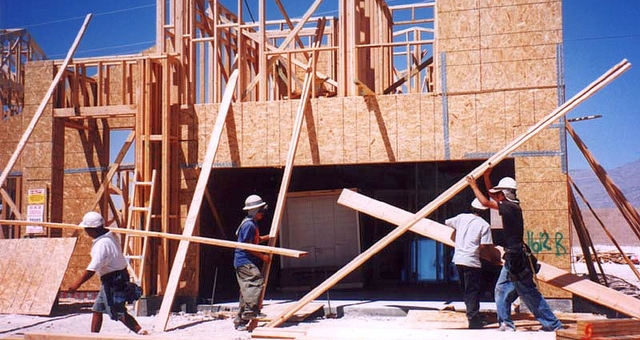
Is a new conceptual model really the roadmap for BIM-based KM in construction projects?
This article is part of an ongoing series looking at knowledge management (KM) in the building and construction industries.
Considered a ‘game changer’, Building Information Modeling (BIM) is being increasingly used worldwide to facilitate the effective management of information across the whole life cycle of a built asset, including in the design, construction, and facility management phases. For example, the UK Government has made it mandatory for all centrally funded work to be undertaken using BIM, and a National Building Information Modelling Initiative is being advanced in Australia.
However, while BIM is being used to facilitate effective information management (IM), BIM-based knowledge management (KM) has so far been rarely attempted or studied. Illustrating this, the papers that I’ve previously reviewed in regard to BIM-based KM are largely conceptual in nature. One proposes a shift from BIM-based IM to BIM-based KM1, another presents a knowledge-based BIM (K-BIM) framework for facilities management2, and a further one describes a case study that shows proof-of-concept of a SocioBIM system for KM3.
A new conference paper4 is similarly conceptual, with the authors carrying out a comprehensive literature review on KM and BIM to construct the theoretical framework for a conceptual model for BIM-based KM in construction projects. Although conceptual, this new study claims to significantly advance BIM-based KM, with the authors stating that “The proposed conceptual model is a road map for adapting KM process with BIM as a new KM tool.”
Sadly, however, the conceptual model fails to adequately deliver on this promise.
The model describes a series of steps leading to the establishment of an ‘electronic-intelligent building knowledge model’ (e-iBKM). This “provides knowledge in a cloud-based environment,” with the paper authors arguing that current and future developments in information and communications technology (ICT) will bring about a new era in BIM-based KM.
However the new KM standard ISO 30401:2018 Knowledge management systems – Requirements advises that “knowledge is intangible and complex; it is created by people,” and alerts that there are “many common misconceptions about how to do knowledge management, for example the view that simply buying a technology system will be enough for knowledge management.”
While the proposed e-iBKM will potentially assist BIM-based KM, a technology system such as this is just one of the knowledge management enablers needed in a knowledge management system. The other enablers include human capital, organisational processes and governance, and a knowledge management culture.
To ensure the appropriate development of BIM-based KM, the construction industry is encouraged to consider and apply the new KM standard ISO 30401:2018 Knowledge management systems – Requirements and to also seek advice from KM practitioners and networks. Similarly, KM practitioners and organisations can pursue the establishment of beneficial links with construction industry organisations.
Header image source: Home Builder by Scott Lewis is licenced by CC BY 2.0.
References:
- Wang, H and Meng, X (2016) Improving Information/Knowledge Management Through the Use of BIM: A Literature Review. In: P W Chan and C J Neilson (Eds.) Proceedings of the 32nd Annual ARCOM Conference, 5-7 September 2016, Manchester, UK, Association of Researchers in Construction Management, Vol 1, 45-54. ↩
- Charlesraj, V.P.C. (2014). Knowledge-based building information modeling (K-BIM) for facilities management. In ISARC. Proceedings of the International Symposium on Automation and Robotics in Construction (Vol. 31, p. 1). Vilnius Gediminas Technical University, Department of Construction Economics & Property. ↩
- Grover, R., & Froese, T. M. (2016). Knowledge Management in Construction Using a SocioBIM Platform: A Case Study of AYO Smart Home Project. Procedia Engineering, 145, 1283-1290. ↩
- Ozturk, G. B., & Yitmen, I. (2019, February). Conceptual Model of Building Information Modelling Usage for Knowledge Management in Construction Projects. In IOP Conference Series: Materials Science and Engineering (Vol. 471, No. 2, p. 022043). IOP Publishing. ↩
Also published on Medium.


